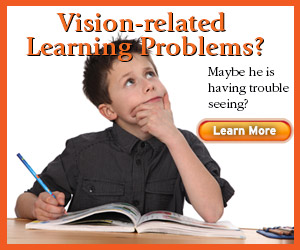February has been announced age-related macular degeneration (AMD) and low vision awareness month. Age-related macular degeneration (AMD) is the foremost cause of blindness for individuals age 65 and over. Macular degeneration can result in low vision, a term eye doctors use to categorize significant vision loss that cannot be helped by standard measures such as regular glasses, contacts, medicine or even eye surgery. For those with AMD, a degenerative eye disease, damage is caused to the macula, the part of the retina which is responsible for sharp vision in the central visual field. The disease causes a disruption in or blurring of central vision, but usually leaves peripheral vision intact.
Vision loss from AMD usually comes on gradually and painlessly over time but rarely impairment can be sudden. Early symptoms of low vision from AMD include blurred areas in your central visual field or very distorted vision. While there is currently no cure for AMD, early detection and attention can slow advancement of the disease and subsequently thwart low vision. For individuals who have already experienced vision loss, low-vision rehabilitation and aids can help.
Those at higher risk of AMD include individuals over 65, females, Caucasians and individuals with light eye color, severe hyperopia (farsightedness) or family members with the disease. Controllable risk factors include smoking, high blood pressure, exposure to UV light and obesity. Proper exercise and nutrition including certain nutrients has been linked to prevention.
Individuals who suffer from low vision should speak to an optometrist about low vision rehabilitation and special equipment that can enable a return to daily activities. After an extensive eye exam, a low vision professional can recommend appropriate low vision aids such as reading telescopes and non-optical adaptive aids such as special light fixtures and signatureguides.
Since so many eye diseases can be halted by early diagnosis, optometrists suggest a routine annual eye exam for all ages. Your awareness can lead to prevention of vision loss.




